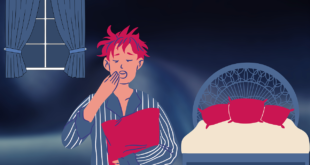(The Daily Beast) – The Qat plant, a staple in Middle Eastern cities, has become popular in China for its mild buzz—but the government says it’s a dangerous gateway drug.
It’s a common sight in this city, as it is in Yemen, Somalia or Ethiopia: idle men plucking leaves out of a flimsy plastic bag, grinding them into mush between their teeth, filling every crevice with bits of green.
A few local women warned me about the qat chewers. “They’re dangerous,” one of them said. “There was a news report that said they are robbers. If they eat qat, they do bad things.” Privately, the qat chewers didn’t seem dangerous. Nobody was strung out. Hours passed before they felt a mild buzz. “Like coffee,” one man said, a familiar line repeated the world over.
That wasn’t in Sana’a or Addis Ababa. It was in Guangzhou, a southeastern trade hub in China with the largest African community in Asia. Ever since the 1990s, many African and Middle Eastern businessmen have flocked to the city in hopes of striking gold, and some found a second home here. But China has a qat problem, and it’s because of these outsiders—or so the government would have you believe.
The Chinese government banned qat earlier this year, and classified the plant as a dangerous narcotic. Chinese media has blitzed the airwaves with public service announcements and special features on news programs to warn their viewers about the dangers of qat. They call it “Arab Tea.” Some presenters claim that qat is like heroin, a depressant. Others say it’s like meth, a stimulant. Some say it is used as a date-rape drug by dark-skinned men. Others say it’s sold as amaranth, a common vegetable that is served as a side dish in Chinese homes, to get unsuspecting shoppers hooked.
The contradictions and outlandish claims are never challenged, because drug education in China is virtually nonexistent.
Where does this “Arab Tea Leaf” come from, according to the talking heads? For the most part, Chocolate City, as locals call it. It’s a neighborhood in Guangzhou where migrant workers and traders have settled semi-permanently, and in the process sculpted those street blocks with their own character. Its nickname is borrowed from the skin color of the many Arabs and Africans who live there, but there are plenty of Uighurs from Xinjiang and Han-Chinese factory workers who share the space as well. Migration doesn’t just move people; cultures and habits follow. It’s true that some traders brought the habit of chewing qat with them to China. Smugglers supply those who demand fresh batches. Others drink it as a tea made from dehydrated qat, packaged in powder form like instant coffee or locally popular milk tea.
Despite its illegal status, as long as there is a demand for qat, someone in hypercapitalist China will sell it. Chinese women have been spotted on the street hawking qat. But since the crop is not grown domestically, it needs to be imported. Chinese customs officers do manage to seize some of the shipments, in one instance confiscating over 3,500 kilos of qat, and made hey of their success in the fight against foreign-born vices.
China, like the U.S., has long waged a war against drugs, for good reason. In the 1800s, sales of opium in Qing dynasty China by the British East India Company led to two armed conflicts between the Qing Empire and the United Kingdom (later joined by the French Empire and the United States). Nowadays, Northeastern China has a meth problem, where smugglers move North Korean meth, home cooked and ready to be distributed throughout the country. There is no doubt that meth is destructive, and a clampdown is justified. But minor offenders are caught in the storm as well, and can face hefty punishment. Jackie Chan’s son, Jaycee, was arrested earlier this month alongside a Taiwanese actor, Ko Chen-ting, for marijuana possession. Ko was released, and while Chinese law states that Jaycee Chan could face the death penalty, he has been formally charged with a crime that carries a penalty of up to three years in prison.
Offenders who don’t have celebrity status are sent to detox centers where they do factory work, even though China supposedly abolished its labor camps last year. Beijing’s night owls have also faced random urine tests conducted by police in bars and nightclubs, a new procedure implemented since August. While America is currently liberalizing marijuana laws, China is tightening its grip on all users of all drugs, including marijuana and qat.
At a drug awareness event held in Guangzhou last April (link in Chinese), doctors claimed to be treating 716 qat “addicts” in methadone clinics. Multiple attempts to reach out to medical professionals in Guangzhou to find out more about methadone treatment for qat users have yielded no responses.
The legality of qat varies geographically. It is a controlled substance in the U.S., Canada, and much of Western Europe, as well as China. But it is legal in Ethiopia, Somalia, and Kenya. It is used openly in Yemen, and can be bought in several markets in Israel. The “Khat Fast Facts” issued by the U.S. Department of Justice says that qat abuse can lead to psychological dependence, behavioral changes, and mental health impairment. It goes on to say that “clinical symptoms include manic behavior with grandiose delusions, violence, suicidal depression, and schizophreniform psychosis.” The handout paints a dire picture, but the qat users of Guangzhou are successful businessmen. Watching them chew qat for several hours seemed more like laid-back relaxation, with a few friends socializing over an alternative to drinks.
Most medical studies that have taken closer looks at qat say that it is addictive, and giving it up after prolonged use can lead to withdrawal symptoms. But if its effects are like coffee—as cognizant, long-time qat users suggest—then imagine what would happen if coffee was banned tomorrow. Those who are used to drinking a pot a day would feel terrible. The same goes for cigarettes. But qat is alien, both in the West and in China, and that makes it an easy target. For the Chinese government, it’s another way to hassle the Arab and African communities that live and work in Guangzhou. Men with darker skin aren’t always welcome in China, and many face routine harassment.
Beijing’s drive to maintain a drug-free society is admirable, but the community in Chocolate City is vibrant, and flippant disregard of its inhabitants’ lifelong habits only exacerbates the existing tensions between Chocolate City and the rest of Guangzhou. Qat users don’t pose a threat to the “harmonious society” that China obsessively maintains. And yet the hunt is on and China’s war on qat will continue to target intercontinental travelers who once saw China as a land of opportunity.
Source : The Daily Beast
 Daryeel Magazine
Daryeel Magazine


